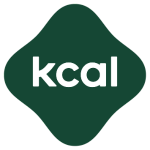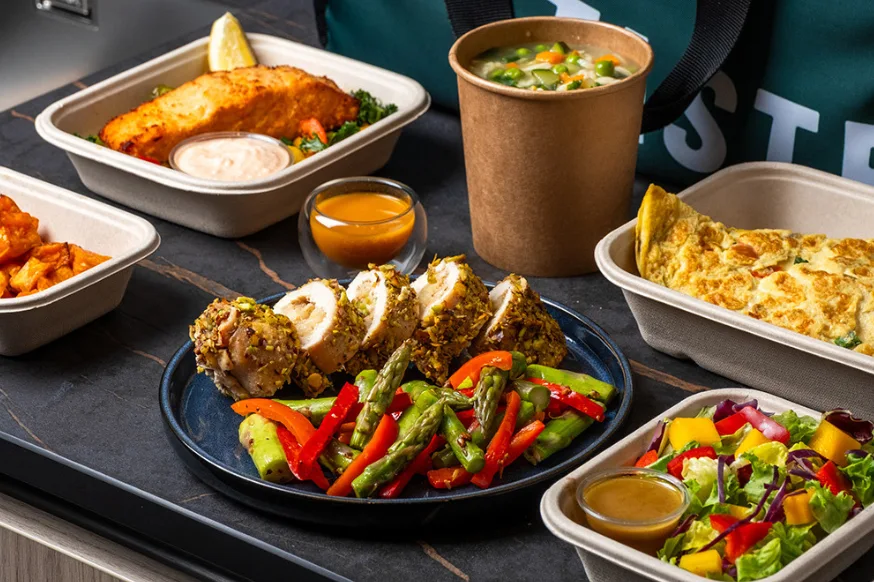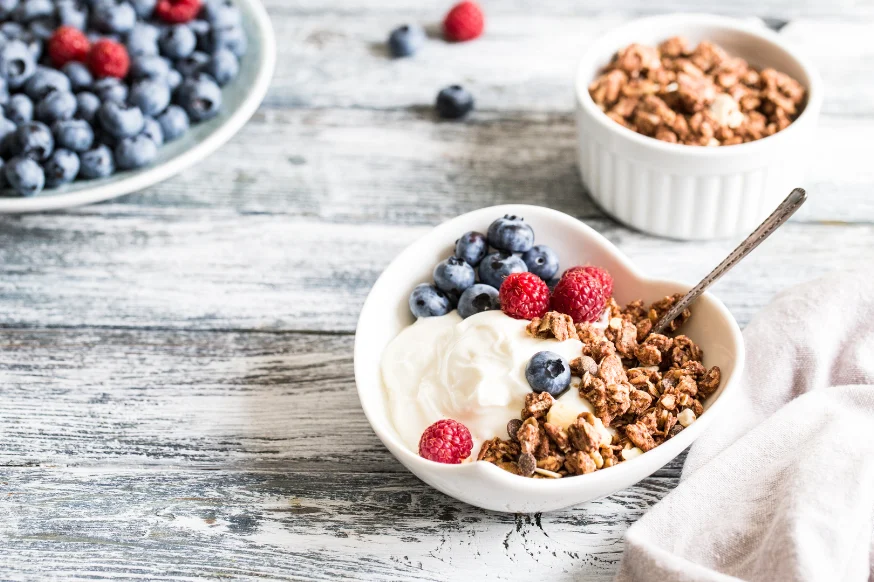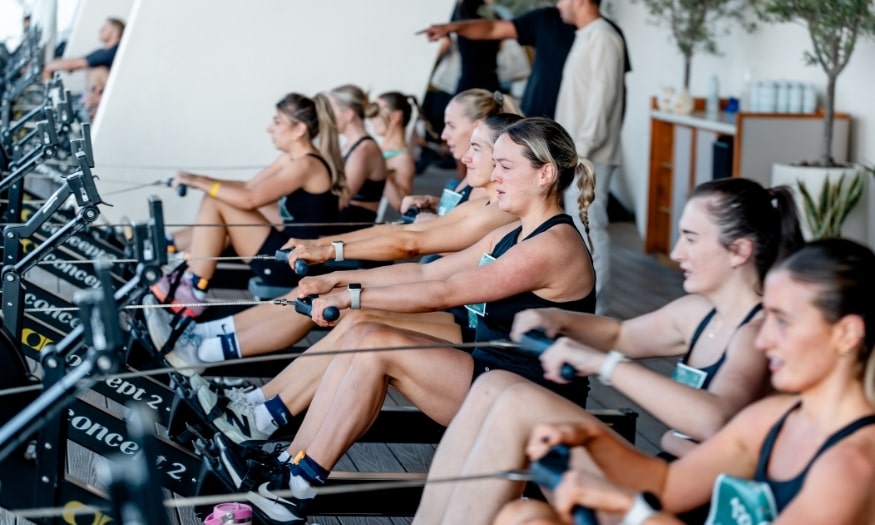What food should you eat to help you lose weight? It’s something we’ve all wondered at one time or another. Sometimes the barrage of information found on the internet can be incredibly overwhelming, trying to figure out what works for you and your body to help you lose weight. In reality there isn’t a definite answer but there are things that can be helpful.
We’ve all been told to avoid ultra-processed foods – packed with sugars, salt and preservatives they can lead to weight gain and other health conditions, so what are we supposed to be eating?
We’ve rounded up some of the best bits to incorporate into your diet.
1. Eggs
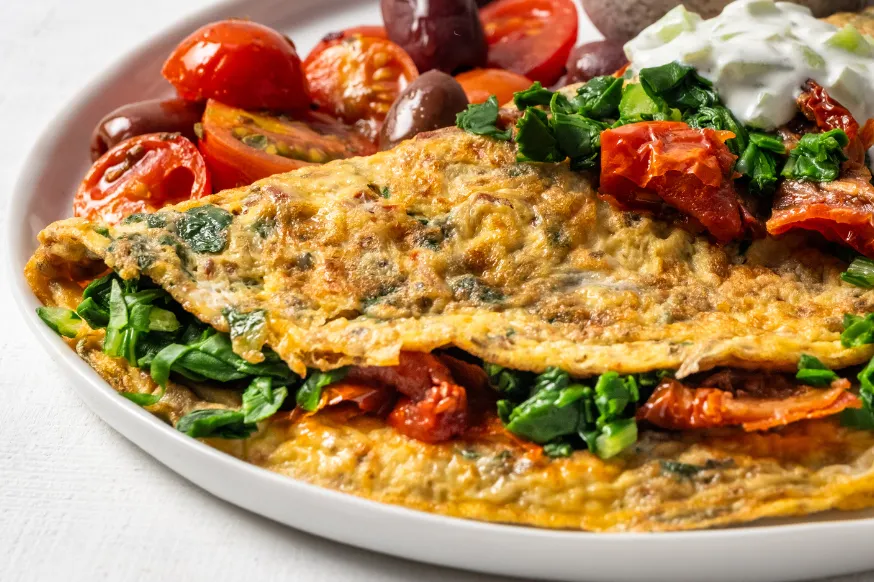
A breakfast staple, eggs are packed with protein and lower in calories than you would think. They are low in fat and keep you fuller longer making them a great breakfast addition and a healthy snack. Each egg yolk is packed with vitamins and minerals (vitamin D, potassium, and vitamin B-6 to name a few) so make sure you’re eating the whole egg and not just the whites – check out our omelettes to see how we do it!
2. Legumes and beans
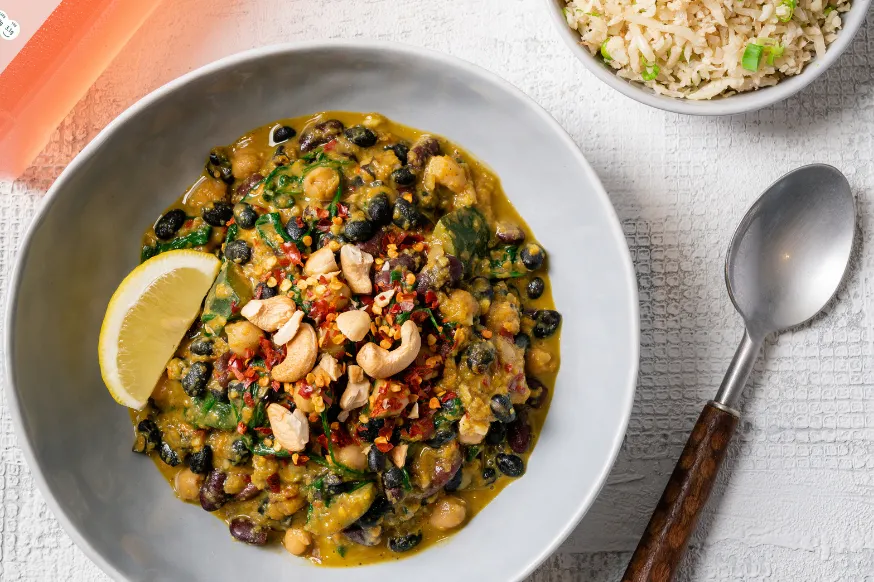
Not only are legumes and beans good for your heart and gut health thanks to their high fibre content but they are also packed with protein. With so many to choose from, including black beans, lentils, kidney beans, and chickpeas there are endless simple recipe variations to try that will leave you feeling full, satisfied and help you towards your goal.
3. Whole grains
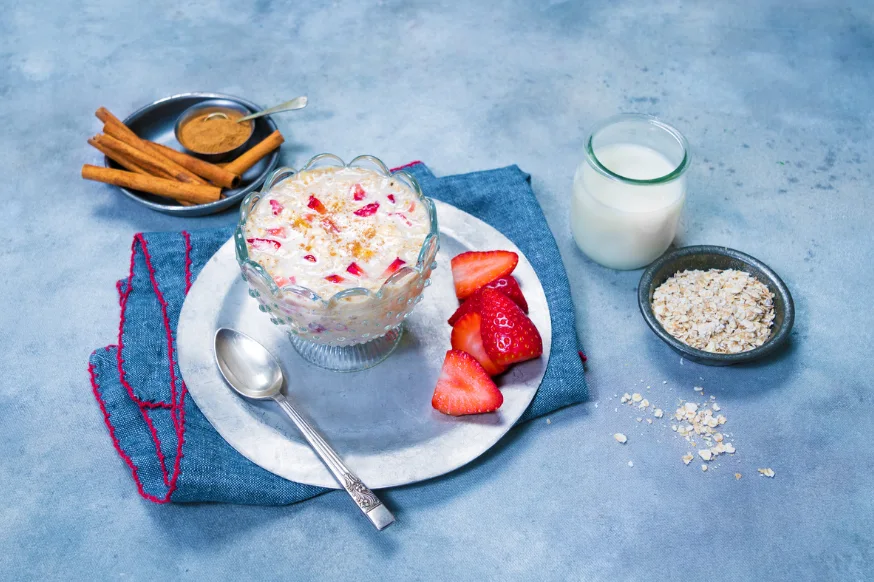
Another fibre packed option whole grains can be included in just about any meal or snack. From oatmeal, multi-grain breads, brown rice and quinoa to some cereals, and popcorn.
4. Fruits

If you’re craving something sweet, fruit is a fantastic way to satisfy them without diving into sugar laden treats. Including fruit in your diet means you are more likely to have healthy blood sugar levels, take in more vitamins and minerals, and eat an appropriate amount of calories.
5. Leafy greens
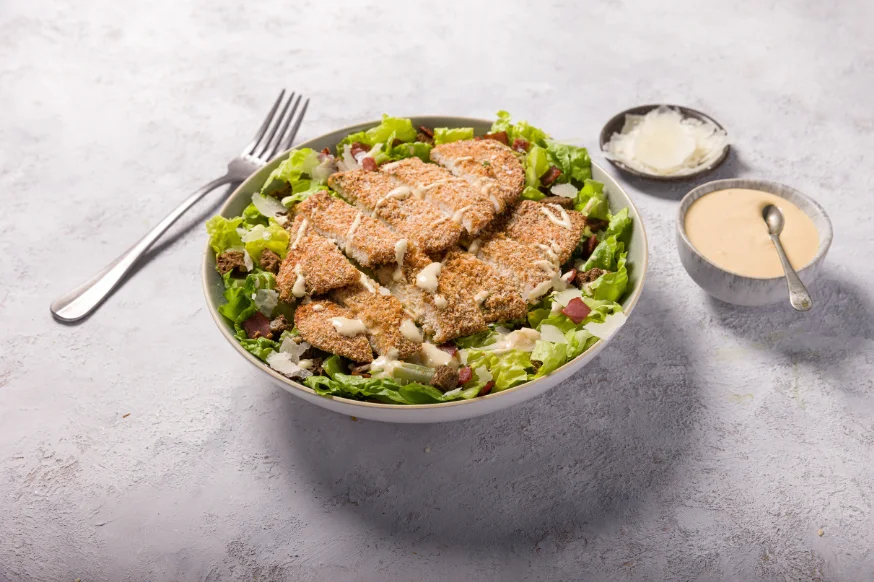
Greens like kale, spinach, romaine lettuce, swiss chard, and bok choy are hearty, filling, and extremely nutritious and are easy to mix into any meal. Leafy greens are a great way to help you keep your calories in check but increase the volume of your meals.
6. Fish
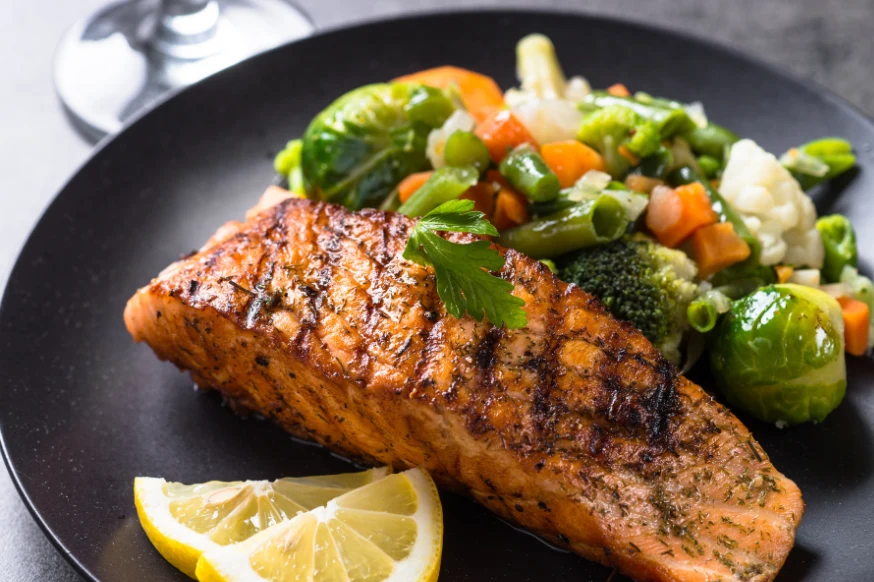
Full of protein, unsaturated fats and important omegas, fish like salmon and tuna are a great addition to your weekly menus. Tuna is extra lean, making it a great low calorie option while salmon has been shown to contain iodine and support thyroid function to keep your metabolism running smoothly.
7. Chicken and turkey
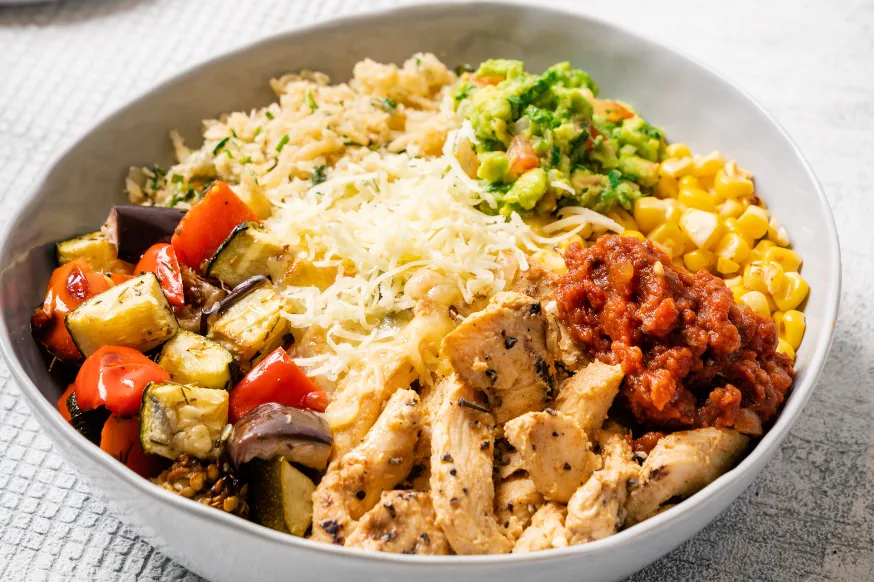
Chicken is lean and high in protein – the perfect combination for weight loss! Compared to beef, your body can absorb more of the amino acids making it a solid choice for building or maintaining muscle.
Alternatively, turkey is an extra lean option which can be easily substituted for ground beef in your favourite recipes.
8. Nuts and seeds
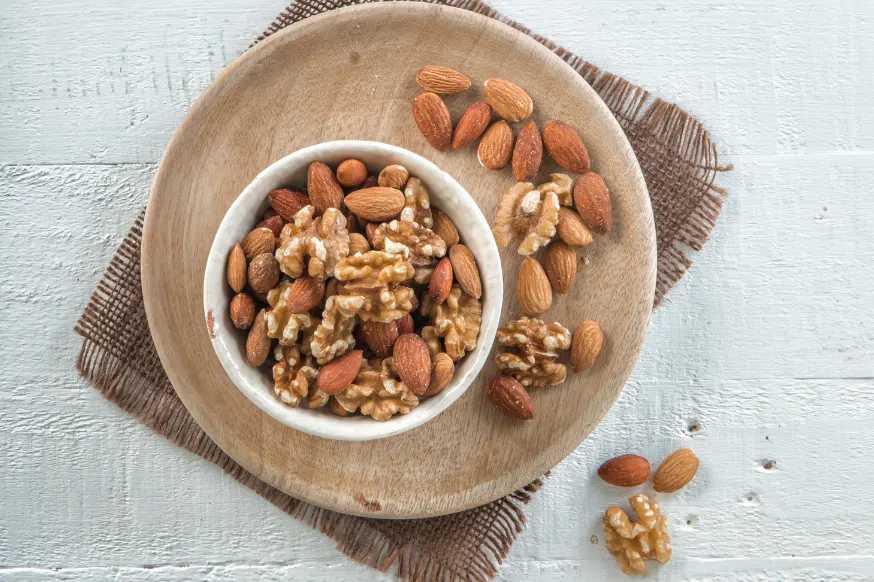
Nuts like almonds, cashews, and walnuts are a great way to add protein and plant based fats to your diet. They make a fantastic snack on their own or be added to a salad or side dish for an added bit of crunch. They might be higher in calories but a small handful can go a long way in helping you feel full.
Things like chia seeds can be added to your morning oatmeal, sprinkled in a smoothie, or made into a pudding.
9. Coconut oil
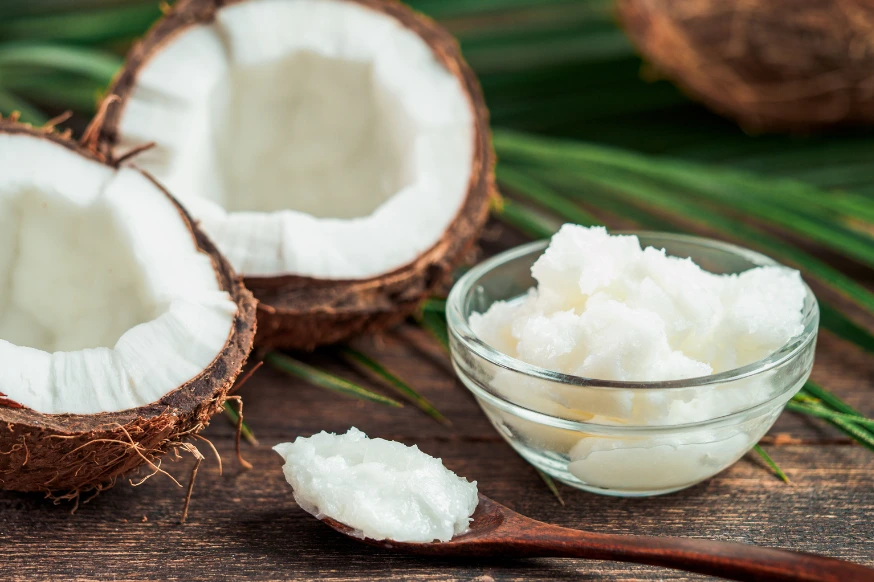
Coconut oil is a great saturated fat option that is packed with numerous health benefits. Using coconut oil in place of your regular cooking oil helps increase satiety while helping you burn calories.
10. Cruciferous vegetables
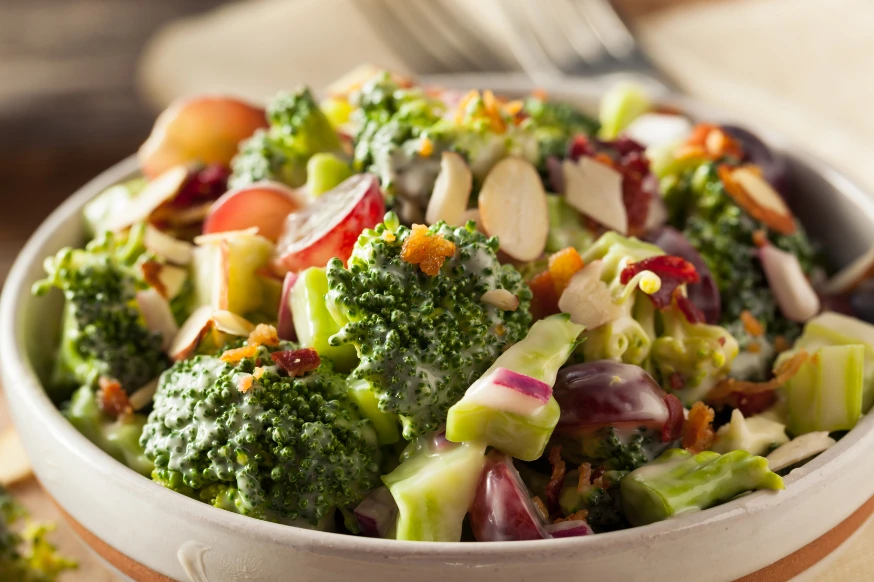
Cruciferous vegetables include broccoli, cauliflower, Brussels sprouts, and cabbage, to name a few. They are packed with fibre making them immensely filling and they contain a moderate amount of protein. These nutrient dense, calorie light options are incredibly versatile and can be added to casseroles or dishes your family already loves, or be made into new meals of their own.
11. Potatoes
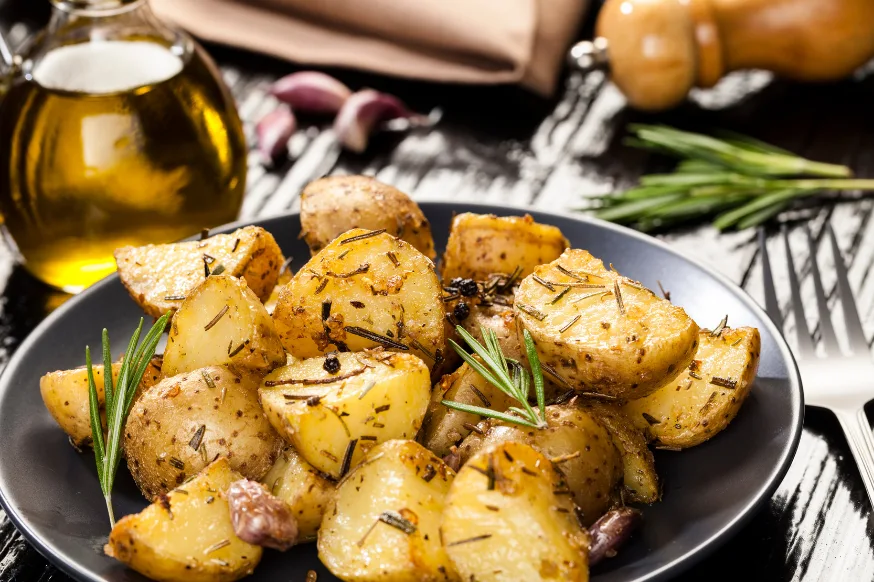
White potatoes are incredibly filling and are high in nutrients like potassium and healthy amounts of starch when eaten in moderation. When cooking your potatoes, the trick is to watch what you add to them. Boil them, roast them with olive oil, or bake them and top with salads and protein.
12. Avocados
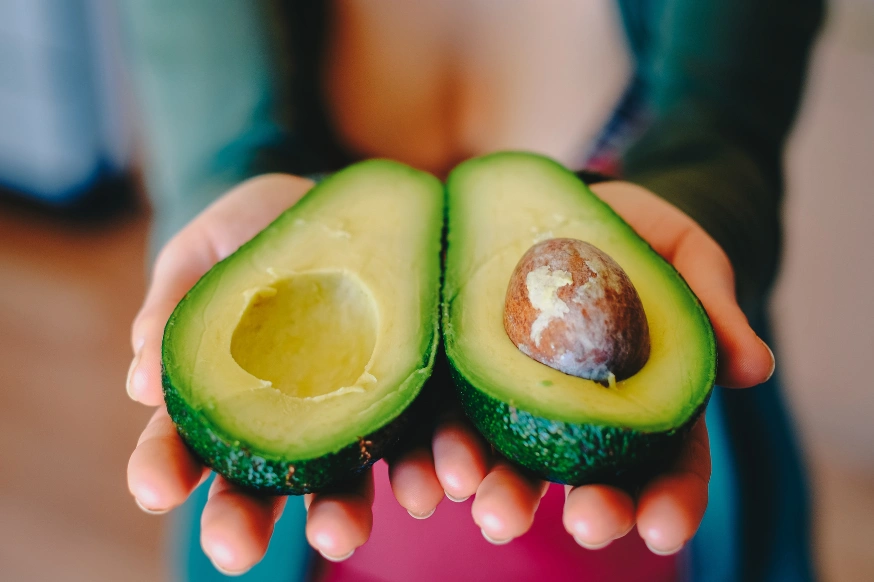
Full of unsaturated fats, similar to those found in olive oil avocados are revered for good reason. While they are a higher calorie food, they also contain fibre and water, in fact one third of a medium avocado is only about 80 calories!
13. Cottage cheese
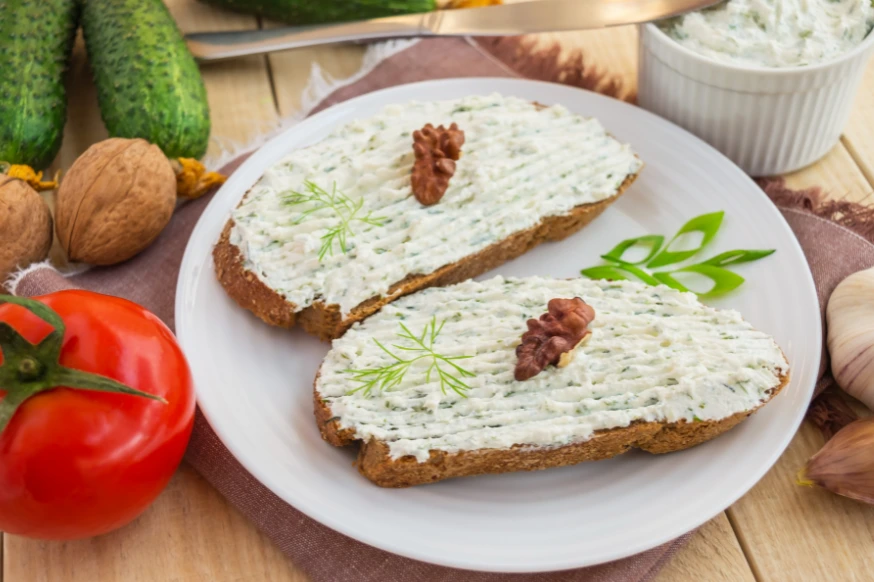
Dairy products are high in nutrients like calcium, as well as protein. Cottage cheese is a generally fairly low-calorie when compared to other cheeses and can be a satiating addition to meals like breakfast or even your afternoon snack.
14. Greek yogurt
When it comes to yogurt (and most other things) low-fat options are generally much higher in added sugars which can contribute to weight gain so always opt for full-fat where you can. Greek yogurt is higher in protein than other yogurts, making it more filling and a great breakfast option.
15. Soups
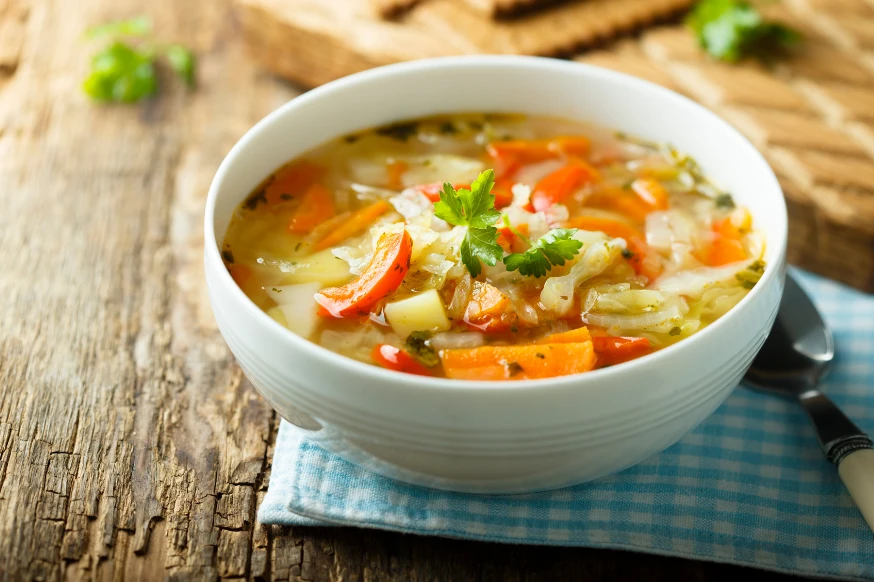
Soups can help you add water and nutrients into your diet without adding bulk and calories. Choose ones that are more broth based rather than cream based as these are more filling and are an easy way to work a variety of nutrients into one meal.
